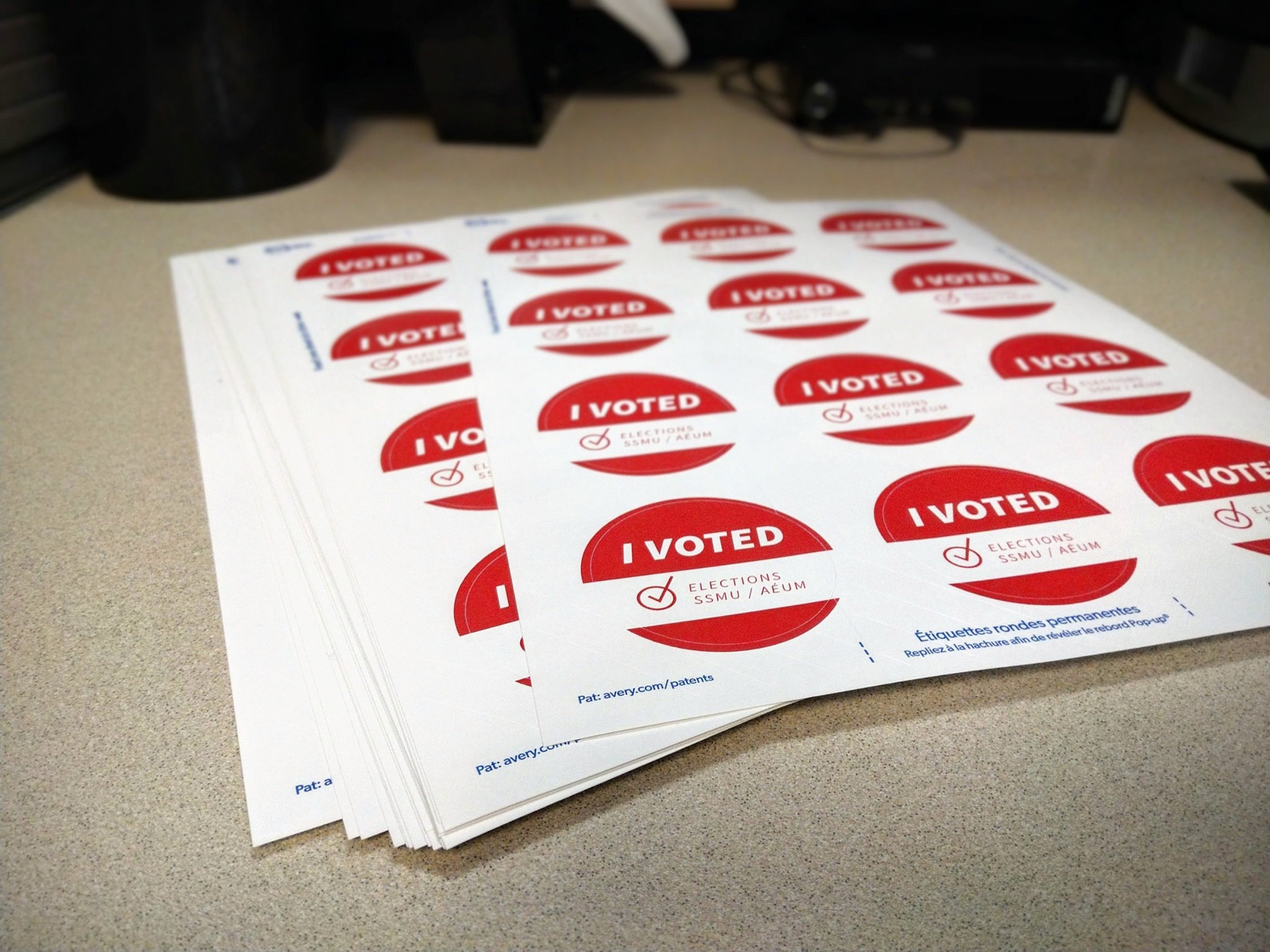The Students’ Society of McGill University’s (SSMU) 2020 Special Referendum failed to reach the required 15 per cent quorum needed to ratify proposed changes to the SSMU constitution. The referendum’s polling period ended on Oct. 16 with a voter turnout of 12.8 per cent, marking the lowest turnout since 10.6 per cent during the 2015 Winter Special Referendum. As a result, the Society will re-examine the methods used to increase student engagement.
On Sept. 5, SSMU’s Judicial Board (J-Board) responded to the Board of Directors’ appeal regarding the suspension of their judgement of the SSMU 2020 Constitution. The J-Board ruled that the ratification of the amended Constitution in the Winter 2020 referendum was invalid because the French version of the document was not made available during the polling period. The Judicial Board gave SSMU until Nov. 1 to hold a special referendum to ratify the 2020 Constitution and its supporting documents but because it failed to meet the 15 per cent quorum, the proposed version was not adopted.
SSMU will reinstate the 2017 Constitution as of Nov. 1, as ruled by the Judicial Board. After restoring the constitution, SSMU will be forced to restructure the Board of Directors and the Legislative Council and remove representatives from Theology, the Francophone Affairs Committee, the Indigenous Affairs Committee, the Equity Committee, and the Macdonald Campus Students’ Society (MCSS). During the Legislative Council meeting on Oct. 22, SSMU President Jemark Earle discussed further changes.
“One representative from the inter-residence council, one senate caucus representative, and one environment representative [will be added to Council],” Earle said. “Additionally, the Executive Committee will be voting members of council. [This will] remove the joint Board-Council session.”
In contrast, the 2018 Winter Referendum saw the highest percentage of voter turnout in almost 14 years, largely due to student interest in voting for a Fall reading week. However, since then, student engagement in SSMU Elections and Referenda has been on a steady decline every semester since Winter 2018. Many students, including Arts Councillor Chip Smith, are concerned about the low voter turnout.
“This is a referendum,” Smith said. “It’s a campaign [….] I know that [voting] is the most important thing [during a referendum]. Frankly, there was no real get-out-to-vote in this campaign, so my question is, what did the executive do to get turnout? What deals were made to students? What was used? Were there Facebook posts? What was the role of the executive in that?”
The Student Engagement Plan, approved by SSMU in April 2020, outlines ways in which certain communication practices could improve participation in student government. The plan suggests tabling, flyering, and classroom announcements as the best methods to engage students. The Student Engagement Plan finds that emails and social media posts do not allow for direct engagement with the student body. With the Fall 2020 semester entirely online due to the COVID-19 pandemic, effectively reaching students has been challenging.
“[SSMU’s communication practices] were probably one of the reasons [why the referendum failed],” Earle said. “Maybe our communications were not as strong as they were in the past. I know there were several ads put out on [SSMU’s] Instagram and on Facebook. I don’t know how far those [ads] reached.”
Tasked with reviewing SSMU’s governance bodies, the Comprehensive Governance Review Committee (CGRC) will continue to work on creating a more accessible SSMU. As a committee of the Legislative Council, the CGRC meets biweekly. Chair of the CGRC Lauren Hill met with the committee for the second time on Oct. 23 and will be making recommendations to improve SSMU’s practices and broaden general engagement with student governance at McGill.
“I can’t guarantee that [the Constitution] will be brought up again [in the same way], but it will definitely be a discussion point moving forward,” Hill said. “What I suspect will occur is that we are going to go through all of the changes that were originally brought forward to be changed [for] further consultations to see if that’s still the desire of the student body.”








